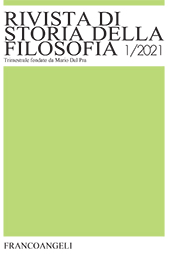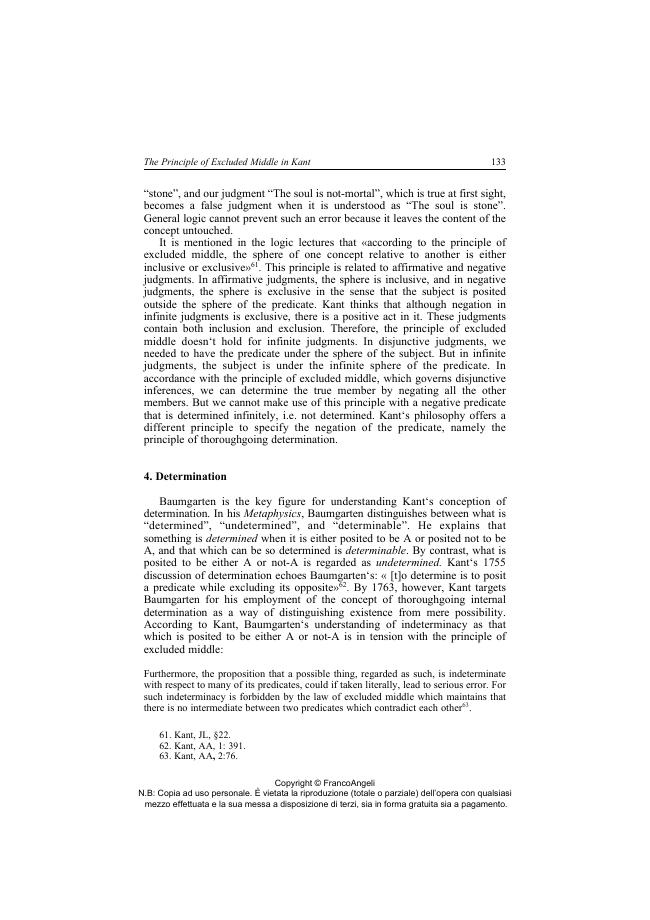The principle of excluded middle in Kant
124-141 p.
The principle of excluded middle is more important than is commonly believed for understanding Kant's overall philosophical project. In the article, this principle is examined in the following contexts: (i) kinds of judgments, (ii) concepts of opposition, negation, and determination, and (iii) apagogic proof. It is first explained how the principle of excluded middle is employed by Kant in distinguishing between the kinds of judgment. Also called the principle of division, it is the principle of disjunctive and apodictic judgments in Kant's famous table of judgments. Next, the Author shows which kind of opposition is related to the principle of the excluded middle. As a merely logical criterion of truth, this principle grounds the logical necessity of a cognition and plays an important role in the use of apagogical proofs.
Then Kant's account of logical negation will be investigated briefly. Negative judgment with a negative copula indicates that something is not contained within the sphere of a given concept. This process occurs in accordance with the principle of excluded middle. Finally, an analysis is made of how Kant presents the metaphysical principle of thoroughgoing determination and its differences from the logical principle of excluded middle. [Publisher's text].
Forma parte de
Rivista di storia della filosofia : LXXVI, 1, 2021-
Artículos del mismo número (disponibles individualmente)
-
Información
Código DOI: 10.3280/SF2021-001006
ISSN: 1972-5558
KEYWORDS
- Kant, logic, the principle of excluded middle, disjunctive judgment, negation, determination



